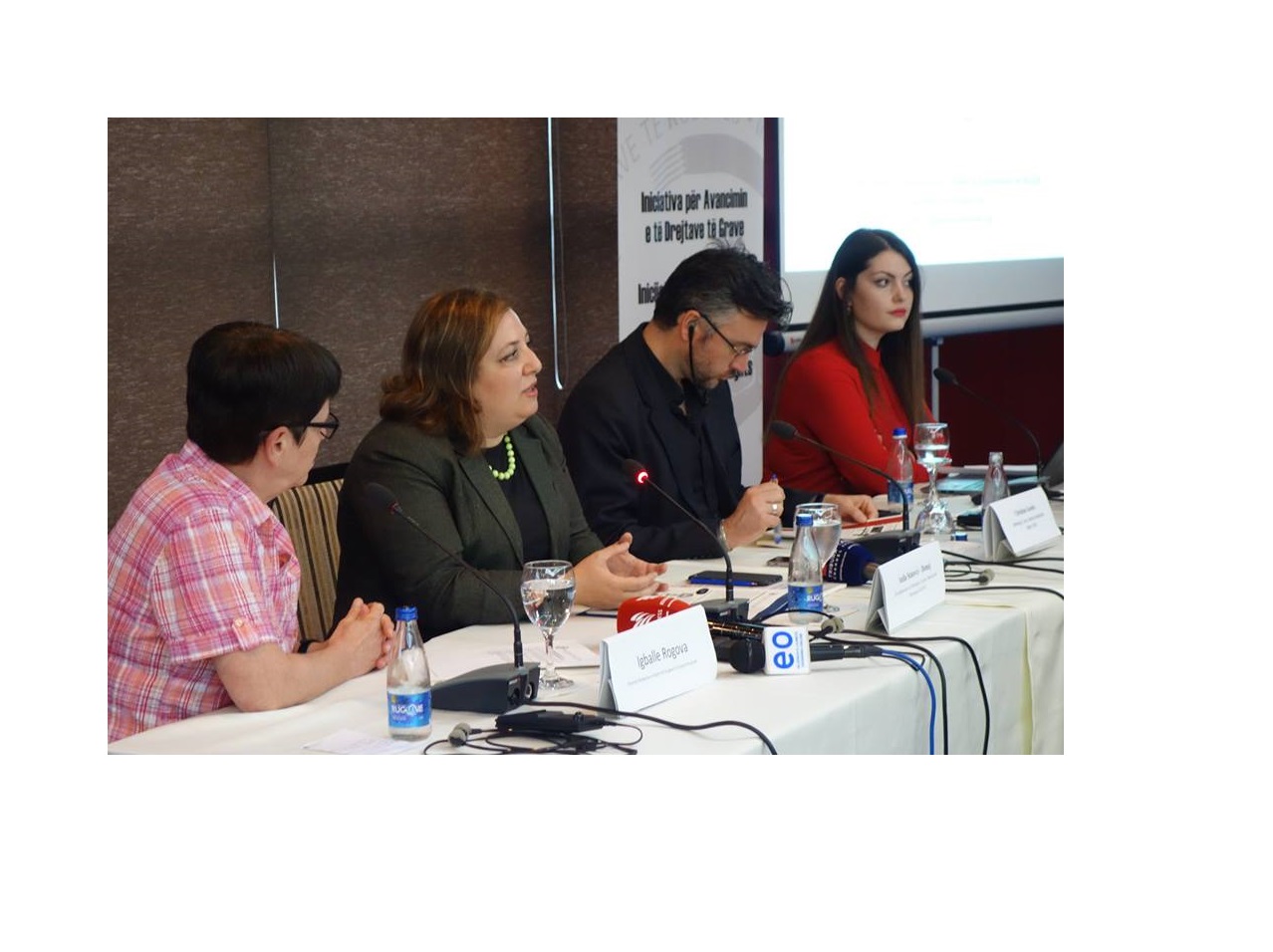Gender Responsive Budgeting (GRB) and Gender Analysis are two new legal obligations for Public Institutions in the Republic of Kosovo. Since 2014, KWN has been supporting budget organizations at the local and central level in institutionalizing GRB and conducting gender analyses. Since 2015, KWN has supporting the Ministry of Education, Science, and Technology in this process. On June 6, this report was launched at a public event.
This report had two main aims:
- To conduct the first in-depth gender analysis of almost all MEST departments, divisions, institutes and universities
- To support MEST in implementing their new legal obligations transferred to them through the new law on Gender Equality, namely, gender analysis and gender responsive budgeting.
In her opening remarks, Igballe Rogova, KWN Executive Director, thanked both MEST and Austrian Development Agency (ADA) for their support throughout this processes. Anila Statovci-Demaj, MEST Deputy Minister, thanked KWN for providing this support, adding that their Ministry has a particular importance for future generations.
Christian Geosits, ADA, Christian Geosits, Head of Office of the Austrian Development Agency (ADAstated that ADA is thrilled seeing two of their main partners KWN and MEST cooperating on such an important issue. “This report has a very specific importance, given the novelty of GRB as a concept not only in Kosovo, but also in Austria and the EU”, Mr. Geosits added.
Afterwards, Donjeta Morina, one of the two authors of the report proceeded to give some of the main findings of the report, continuously highlighting the importance that MEST implement the recommendations. Some of the main findings and recommendations include:
- Even though statistics suggest that there is a rather equal share of boys and girls with special needs. Data shows that more boys attend special education. The Division for the education of children with special needs, GEOs, and school officials at the municipal level can proactively meet with organizations working with persons with disabilities to encourage parents to enrol children with special needs in schools, focusing particularly on outreach to parents with daughters who have special needs. This activity will have no extra cost and require only minimal time by officials.
- Due to gender norms, comparatively lower pay, and low university enrolment in education programs, few men teach pre-school. This gender imbalance means that men do not benefit equally from budget allocations to teachers at this level. Further, the lack of male role models likely impacts the quality of teaching for children. Cultural stereotypes of typically male and female jobs are reinforced; young children believe that care professions are inappropriate for men, passing on social norms and stereotypes from generation to generation. Affirmative actions could contribute to addressing this issue. MEST could collaborate with universities to install incentives for young men entering a career in early education. This could involve earmarking existing scholarships (subsidies) or providing discounts in tuition for young men studying education as an affirmative action towards increasing the percentage of young men enrolled.
- Kosovo has an insufficient number of affordable pre-schools and day-cares to meet the level of demand and the European Union’s (EU) Barcelona Objectives. It also was noted in the EU 2015 Progress Report. This is a major factor negatively impacting women’s participation in the labour market. Further, it contributes to non-implementation of the Law on Pre-school Education because the tariff is not always adjusted to parents’ salaries as it should be according to the Law. Investing in early education could enhance children’s educational performance, create jobs, and enable more women to work, thereby decreasing unemployment. Transferring students to other classes and reallocating resources (e.g., teachers and under-used classrooms) could make more efficient use of existing resources towards addressing these needs.
KWN remains hopeful that MEST will take these recommendations seriously and include them in their 2017 Draft Budget.
For more information, please read the report by clicking here.
The Analysis and the Report itself were supported by Austrian Development Agency (ADA)







